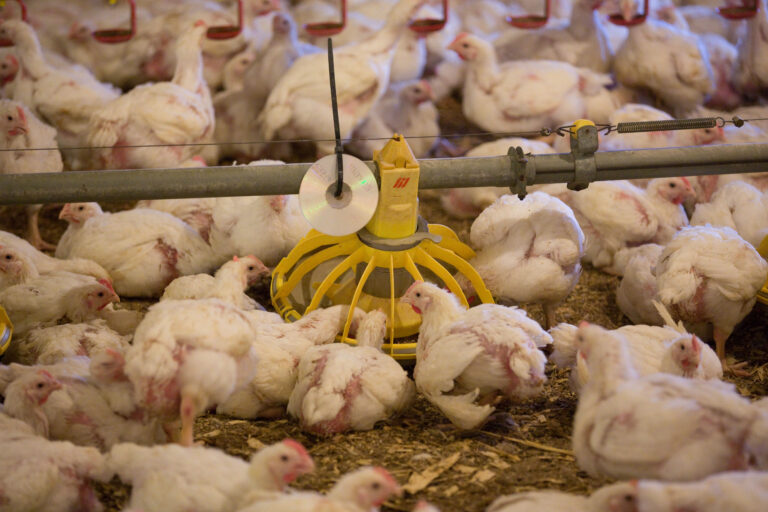Poultry producers and nutritionists are being advised to take care when transitioning new season crops into diets, as this can impact broiler feed conversion and performance.
Alex Sly, Elanco technical consultant said freshly harvested grains may be affected by what is termed ‘new season grain phenomenon’ which is linked to the natural maturation process that grains undergo during storage.
Sly said new season grains usually have a low, highly variable metabolisable energy content which can have a detrimental effect on poultry production.
“For example, wheat contains higher levels of anti-nutrients such as non-starch polysaccharides (NSP) which interfere with the bird’s ability to fully digest or extract nutrients from the grain.
“The viscous properties of NSPs can slow the passage of feed through the gut and create a favourable environment for harmful bacteria to grow. Therefore, feeding newly harvested grain can be problematic, often leading to a drop in bird performance as well as an increase in wet litter and disease challenge,” she said.
Such challenges were noted during the 2023 season while conducting on-farm visits through Elanco’s Health Tracking System (HTSi).
Sly said: “We noticed chunks of undigested wheat in the gut, along with more lesions, such as excessive water content and mucous, suggesting the birds were struggling to adapt.
“As a result of these intestinal issues, there were notable changes in the litter within poultry houses,” she said.
Sly said that as grains mature over three to four months in storage, there’s a series of moisture-dependent biochemical and enzymic changes that occur, removing some of the antinutritive properties of NSPs.
“These can improve the apparent metabolisable energy (AME) value of the crop, which improves feed conversion rate (FCR) and dry matter digestibility.”
She said “It’s worth noting however, that a variety of factors including harvest conditions and moisture content can impact these improvements.”
Sly said improvements in digestibility have significant implications on the timing of grain usage in animal feeds. Understanding this can help to optimise feed strategies and improve animal health and welfare.
“Careful management of raw materials leading up to harvest and even blending of new season crops with older grain is an option but isn’t always possible due to raw material availability and limited storage space at facilities.
“A more practical approach would be to increase the level of NSP enzymes (Xylanase, Glycanase and B-mannanase) to combat anti-nutritional factors and improve nutrient digestibility in diets or to use feed additives to support Intestinal Integrity,” she said.
“Pre and probiotics can help to maintain a healthy balance of gut bacteria, which can support digestion and nutrient absorption, and help to mitigate any potential negative impacts on gut health from changes in the diet,” said Sly.


